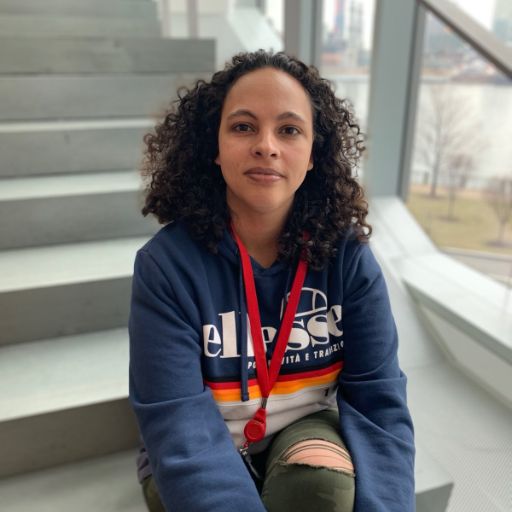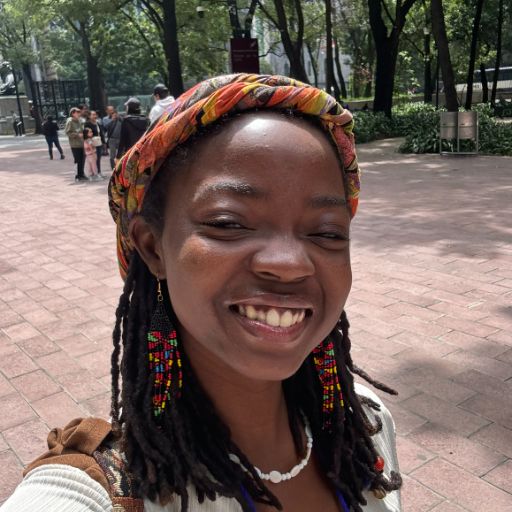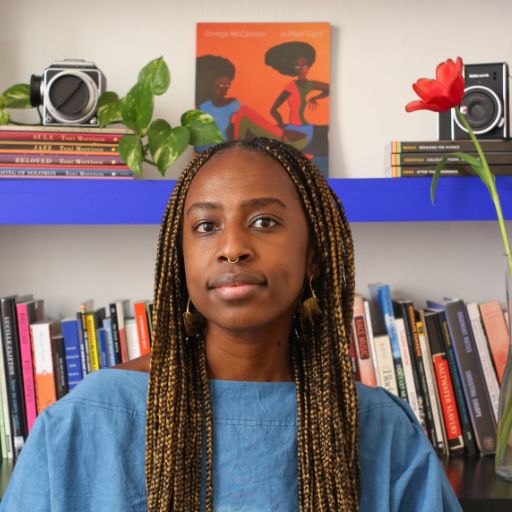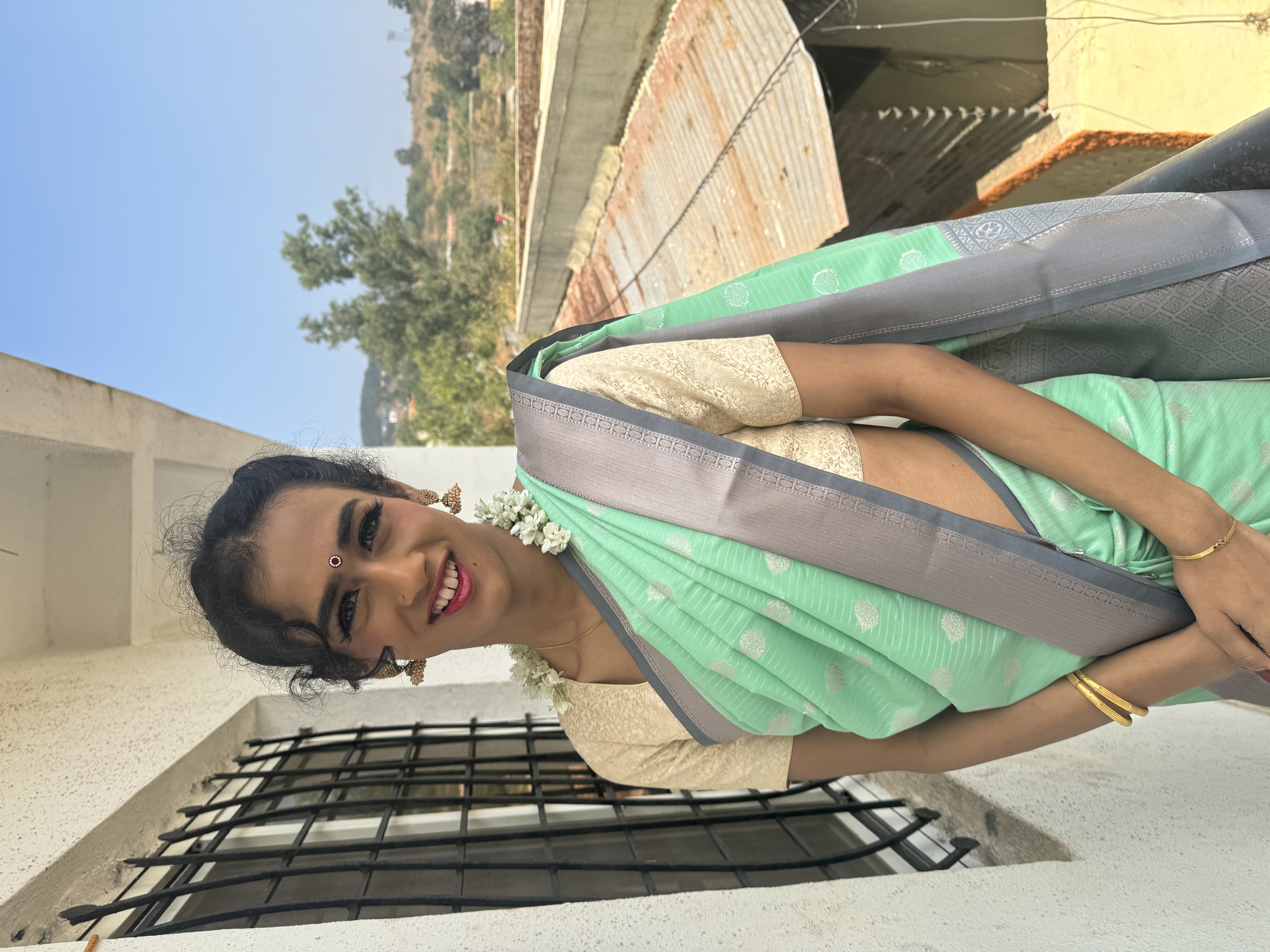People

Khadijah Abdurahman
Editor in Chief
Khadijah is the editor-in-chief of Logic(s). Their research focus is predictive risk modeling in US family policing and tech in the Horn of Africa.

Sucheta Ghoshal
Academic Director
Sucheta Ghoshal is the Academic Director of Logic(s) and an Assistant Professor at the Department of Human Centered Design & Engineering at the University of Washington. Sucheta has been embedded in grassroots social movements in the United States—both as a researcher and as an activist—for the last five years. Her research focuses on studying how grassroots social movements in the United States relate to information and communication technologies (ICTs).

Sam Smith
Production Editor
Sam brings to the Logic(s) team nearly a decade’s experience collaborating with scholars, journalists, and activists to bring forward critical writing, with particular emphasis on technology and society, political theory, and queer perspectives. Their background in organizing and advocacy, including prison abolition and trans-border solidarity initiatives, informs their editorial approach.

Kenia Hale
Project Coordinator
Kenia is the Project Coordinator at Logic(s), bringing with her a background in computer science, environmental justice and technology research, and community oriented work, alongside her own passions for diy publishing and music. At Logic(s) she organizes collaborations with community and coordinates the website.

Rezina Habtemariam
Managing Editor
Rezina Habtemariam, Managing Editor at Logic(s), is a writer and researcher interrogating the technologies that make Black life (im)possible. Habtemariam is currently a project manager with the African Poetry Book Fund, global Black poetics is critical to her work. Habtemariam writes and thinks from Mexico City.

Mallika Dharmaraj
Growth and Development Lead
Mallika Dharmaraj is the Growth and Development lead at Logic(s). As a researcher and organizer, she is interested in situating “AI” technologies within historical structures of power, violence, and personal/collective complicity — drawing from anti-caste and transfeminist ethics. She holds an MPhil in the Ethics of AI, Data, & Algorithms at the University of Cambridge and an A.B. from Harvard College in Computer Science and South Asian Studies.
2023- 2024 Editorial Fellows
Angela Chen is a journalist, editor, and author. She has been on staff at WIRED, MIT Technology Review, Vox Media’s The Verge, and The Wall Street Journal. Her reporting and essays have appeared in The New York Times, The Atlantic, The Guardian, Paris Review, Chronicle of Higher Education, Lapham’s Quarterly, National Geographic, and more. She is also the author of Ace: What Asexuality Reveals about Desire, Society, and the Meaning of Sex, which was named one of the best books of 2020 by NPR.
O. F. Cieri is a novelist with a background in anthropology. She has studied at BMCC and Hunter College. Her prior publications can be found on her website, ofcieri.com.
Rezina Habtemariam is a writer and researcher interrogating the technologies that make Black life (im)possible. Habtemariam is currently a project manager with the African Poetry Book Fund, global Black poetics is critical to her work. Habtemariam writes and thinks from Mexico City.
Osahon Ize-Iyamu is a Nigerian writer whose fiction has appeared in avenues like Lightspeed, Nightmare, Clarkesworld, and Strange Horizons. He is a graduate of the Alpha Writers Workshop and the Clarion 2023 Workshop (where he was an Octavia Butler scholar), and is a recipient of a MacDowell Fellowship. You can find him online @osahon4545.
Ra’il I’Nasah Kiam is a writer, artist, digital curator, and independent scholar and researcher. Their work focuses on Black politics and cultural production, the American South, and online misinformation/disinformation.
Jasmine Lewis (she/her) is a multi-intentional artist, scholar, and vanguard of social change who approaches her aspirations in the same way that she perceives the world—kaleidoscopically. In addition to founding the global storytelling collective TALMBAT, since 2019 Jasmine has served various communities through her work in movement-building and advocacy to craft a more equitable and inclusive society. Her mission is to live life authentically and impactfully, beaming a light of possibility to illuminate ways for future generations to blaze their own paths toward liberation.
Puck Lo (she/they) writes and makes films inspired by utopian politics and dystopian science fiction. As research director for Community Justice Exchange, a prison abolitionist organization, they spend their days dreaming up schemes to end state violence. Puck lives in Lenapehoking / Brooklyn, NY. Her latest film project, Unfinished, is a collectively reenacted queer revisionist history of race treason, anti-colonial resistance, fugitivity, and land in the US desert West during the late 1800s and early 1900s.
Hannah Lucal is a researcher focused on technology and state surveillance whose work supports organizing efforts to end policing. She is a senior policy advisor with Just Futures Law.
Eliza McCullough is a researcher and writer interested in the intersection of technology, labor, and racial justice. She recently cofounded Digital Thread, a collective that explores the role of technology in political violence via short-form video. She has a BA from the University of California, Berkeley, and lives in Brooklyn, NY.
Tendai Mutambu is a writer, editor, and exhibition curator based in Barcelona who specializes in contemporary art and artists’ moving image. He has an interest in organizing cultural workers and was a founding member of Dignity and Money Now (DAMN), a New Zealand–based artists’ rights advocacy group.
Muhib Nabulsi is a Palestinian organizer, writer, editor, and filmmaker living between Naarm and Magan-djin in so-called Australia. They’re currently trying to reconceptualize what it means to write/edit/publish in times of ongoing Western state-sponsored genocide.
Ed Ongweso is a Brooklyn-based writer who focuses on technology, finance, and labor and is Logic(s)’ finance editor. He cohosts the This Machine Kills podcast on the political economy of technology.
Shivangi Mariam Raj is a writer, translator, and independent researcher based between Paris and Delhi. She works with The Funambulist, a platform that examines the politics of space and bodies.
Data Science Fellow
Ali Alkhatib’s work centers on how machine learning and other algorithmic systems project and inscribe certain politics and power dynamics. Before coming to Logic(s), Ali was interim director at the Center for Applied Data Ethics at the University of San Francisco. He studied anthropology and informatics at UC Irvine, and then computer science at Stanford. Lead Fact-checker
Design
Justin Carder is a designer and artist based in the Bay Area. He is the co-host of the oddball graphic design podcast 40 Trillion DPI with Helen Ip.
raya marie hazell (she/they) is the daughter of multiple diasporas. As an independent artist and freelance designer, her work spans physical, digital, and social space. Through collage, installation, digital design, and ritual performance, raya hosts stories around climate grief, blackness and legibility, critical technological futures, and the political power of collective mourning.
Fact Checking
Simi Kadirgamar is a fact-checker with seven years of experience under her belt, including work at the New York Times, The Intercept, and the Center for Investigative Reporting. Her eclectic research interests include the political economy of disinformation, political organizing within the world of martial arts, and the national security state in South Asia.
Fact-Checkers Mattene Toure, Elizabeth Adetiba, Kadal Jesuthasan, Rosemarie Ho, Amber Fatima Rahman, Sophie Hurwitz, Matt Dagher-Marghosian
Copy Editing
Jasmine Butler, Jean Yoon, Nia Abram, Anisha Dutta, Andrea Abi-Karam, Kayla Herrera Daya, Leena Aboutaleb, Dao Tran
2023 - 2024 Liberatory Tech Fellows
Ankolika De is a second-year PhD candidate in the College of Information Sciences and Technology at Penn State University, advised by Dr. Kelley Cotter. She is interested in designing technologies that can empower historically marginalized communities. More recently, she has been evaluating how fast-changing information infrastructures impact those who use such structures for empowerment. Her work has been accepted in top-tier venues such as CHI, ICA, and journals like New Media and Society. Ankolika was born and raised in Mumbai, India, and is proficient in the Indian classical dance form of Bharatanatyam. She is also a part of Natya—Penn State’s only competitive Indian classical dance team—and is an avid dancer. In her free time, she likes reading, cooking, and traveling. Before coming to Penn State, she completed her undergraduate degree in computer science with a minor in psychology from City University of Hong Kong, advised by Dr. Zhicong Lu. She graduated with first-class honors.
Swapnika Dulam is a second-year master’s student in computer science at Penn State University and a graduate research assistant in the THiCC Lab. She is from India and did her integrated dual degree (BTech + MTech) in computer science and engineering from JNTUHCEH, India. She has four years of industry experience as a full-stack developer and has designed distributed systems with Restful API using Java, Angular, ReactJS, etc. She aims to develop sociotechnical systems to ensure fair treatment of all people, irrespective of race, gender, or religion. She is interested in cognitive science and works with ACT-R cognitive architecture. She believes in sustainable living and has a green thumb. She has a lot of hobbies, including crocheting, baking, playing Kalimba, ceramic wheel-thrown pottery, and more. Her goal is to make the world a better place for future generations.
Sanjana Gautam is a PhD candidate at Penn State University, advised by Dr. Mary Beth Rosson. She has led research projects in the domains of educational technology, responsible AI, crisis response, and social media informatics. Her work focuses on designing AI-based socio-technical systems that are inspired by human behavioral theories. She is driven by the quest to create safe and inclusive spaces for all. Prior to starting her PhD at Penn State University, she completed her bachelor’s in computer science with a minor in economics at Shiv Nadar University, India. She has published at top-tier conferences such as CSCW, CHI, EMNLP, EACL, among others. Outside of work, she enjoys art (Madhubani), dancing (the Indian classical dance forms Bharatnatyam and Kathak), and traveling.
Tianqi Kou is a PhD student in information science at Penn State University working at the intersection of feminist science and technology studies and AI ethics. He is particularly interested in applying a feminist epistemological lens to the study of technology and epistemic values embedded in machine learning research practices and evaluation. Currently, Tianqi is researching the concept of replicability in ML research, focusing on how its conceptualization can be modified to improve scientific communication of ML research, which Tianqi has presented at philosophy of science and data science conferences as an invited speaker. Born and raised in China, Tianqi is also interested in bringing transnational perspectives into thinking about AI ethics, the means of resistance for AI industry labor, as well as LGBTQ+ rights. Prior to his doctoral training, Tianqi received a BS in economics at Harbin Institute of Technology and an MS in statistics and machine learning at Fordham University, and worked in the industry as a machine learning engineer. Outside of work, Tianqi enjoys climbing, filmmaking, and being a parent to his pets Gin, Tonic, and Dionysus.
Mukund Srinath is a PhD student in the College of Information Sciences and Technology at Penn State University. He is interested in creating scalable, fair, and trustworthy information retrieval and natural language processing systems. Mukund is currently working on improving the online user privacy landscape by helping users better understand what happens with their data online. Mukund was born and raised in Bengaluru, India. He did his bachelor’s in electrical and electronics engineering and worked as a software engineer for two years. Outside of work, Mukund enjoys reading, hiking, playing squash, and badminton.
Anya Martin is a PhD student in the College of Information Sciences and Technology at Penn State University. She is interested in the ways that machine learning methods change research practices and is currently studying the increasing use of machine learning in climate modeling. She previously completed her master’s in computer science with a specialization in machine learning methods at the University of California, Los Angeles.